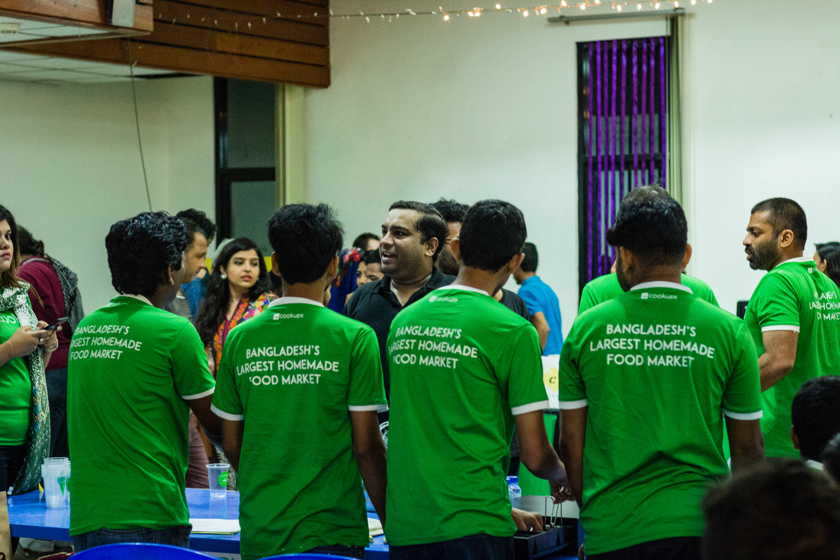
Cookups, the on-demand homemade food marketplace, has been doing a lot of interesting stuff lately. For example, it has been selling fresh produce and groceries under a sub-brands aptly named Growups. It says it sells only safe produce and vegetables under this brand. The model for Growups is similar to Cookups overall model - a marketplace. It has enlisted a handful of producers and suppliers who sell safe food in Dhaka to sell their products using Cookups’s platform. It charges a small commission on each fulfilled order.
Grocery is a difficult market. Players like Chaldal has been operating in the space many years now and yet to make a major dent. For Cookups, the path is not going to be any easier. However, Cookups founders say they have a strategy in place and that Growups is an integral part of Cookups platform, in fact, the underlying thread that ties everything together. It is an interesting way to look at it but not without challenges.
Cookups sees the launch of Growups as a natural progression for it to expand its business. It has, as part of its expansion efforts, also launched a few sub-brands, “which have grown the scope of our business” says Namira Hossain in an interview with FS. “When we started Cookups, we wanted to be Bangladesh’s largest homemade food marketplace, but that is not all we want to be. We want to be THE space where you can get food you can trust.”
Over the past months, it has incorporated catering under a sub-brand called CookupsX, a healthy meal delivery service called CookupsFit and it has started selling groceries and agricultural products under a sub-brand Growups.
This is a significant shift from its initial ambition of ‘becoming a destination for homemade foods in Bangladesh’.
There are some valid reasons for this change. Scaling a purely homemade food marketplace has several limitations because home cooks don’t see it as their full-time day job causing inconsistency and eventually creating fulfillment related challenges for Cookups. To address that challenge, it has added catering services. However, with Growups, it has a bigger ambition. Cookups says Growups is the underlying thread that connects everything else on its platform.
“We are building an ecosystem that starts with cooks, catering services, and food suppliers and Growups, which empowers our cooks and other sellers use healthy ingredients in preparing their food, ties it together,” says Misha. “To ensure healthy food, it has to start with the ingredients. You have to start from the raw materials. For example, if I have adulterated brinjal and if I sell health food with that adulterated brinjal, apparently it is not health food. So for us, it (getting into groceries and launching Growups) was a natural progression that we would go down the supply chain and get into the business of ingredients.”
The startup says the business model remains the same. It will get safe food suppliers on its platform and take a cut from their sales as commission. “The business model is the same. We still get the commission from our vendors. We are doing it in two ways with Growups. So I would go through the two of them. With Growups, it is ingredients, right. It’s vegetables. So what do we do? We do the same thing. We enlist 4-5 businesses that we know are trusted suppliers like khaas food, Amar Desh Amar Gram and we tell them that we are a marketplace, we will put your product on our platform, you sell your product, we will just take a commission. It is the same thing as if they were a cook.”
Although it sounds interesting, Cookups could connect its Cooks and catering services with Growups for ingredients and could have a big grocery business right there, but in reality, grocery is a different business with entirely different dynamics and management needs. But Cookups does not see it as a challenge.
“There is a real demand for safe ingredients in the market. Now that we have this problem solved, we can help our Cooks even better. We are now tying things together. We are asking our Cooks to use our ingredients,” says Misha Ali. “Where we can control, we are asking people to use our vegetables and ingredients, and where we could not control, we are encouraging it by giving them various incentives.”
